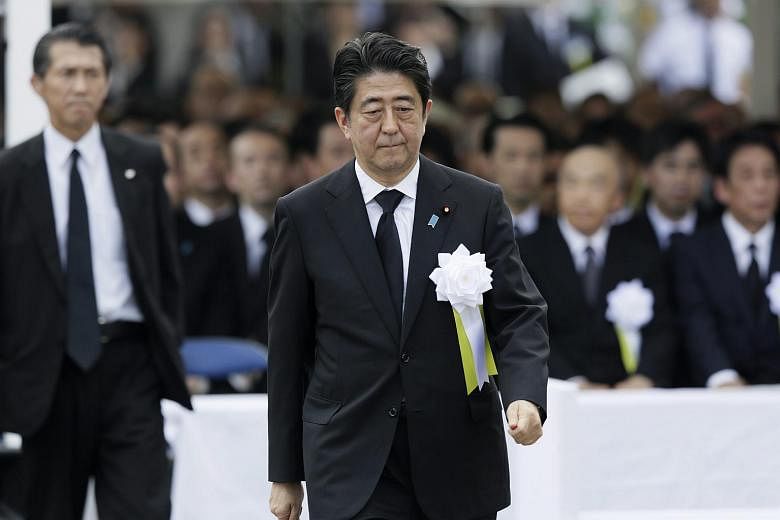In its editorial on Aug 11, 2015, the China Daily urges the Japanese Premier to select his words carefully for the speech he is due to make to mark the 70th anniversary of Japan's World War II surrender.
It is a shame that a war that ended 70 years ago remains an open wound paralysing East Asia.
If left unattended, the diplomatic impasse here guarantees an all-lose scenario that will permanently suffocate the otherwise promising potential of countries in the region and beyond.
East Asia is in dire need of crisis management; and, from a long-term perspective, reconciliation.
While successful crisis management may avoid conflicts, reconciliation paves the way for lasting peace and rapport.
A crisis can be both a danger and an opportunity. And the current crisis in East Asia is certainly dangerous.
Tensions will escalate if the widely anticipated and speculated-about speech that Japanese Prime Minister Shinzo Abe is due to deliver on the 70th anniversary of Japan's surrender defies the calls for repentance and apology for the Japan's past aggression and deviates from the milestone 1995 speech by then Japanese Prime Minister Murayama Tomiichi.
His words were well received in both China and the Republic of Korea for their sincere appraisal of Japan's wrongdoings.
Because of this, it is also a moment of opportunity.
Reaffirming the Murayama stance might not only defuse that ticking time bomb, but even turn the looming crisis into the possibility of Japan repairing relations with neighbours, for the immediate neighbourhood to secure peace, and for the entire Asia-Pacific to regain a powerful engine for prosperity.
This will not be easy for Mr Abe the nationalist. He is anxious to bury the past, not acknowledge it.
He has just portrayed Japan as a victim of the atomic bombs, without mentioning that it was an outcome of his country's aggressions.
With only days to go before his speech, Mr Abe and his advisers are busy weighing and refining the wording.
This in itself suggests that they are unwilling to face up to their country's history, and that they just want to come up with something that pacifies their critics without compromising their twisted outlook on history.
But there simply is no alternative for Mr Abe if he does not want to worsen ties. Missing this historic opportunity will simply convince China and Korea that healthy ties with their neighbour are impossible while Mr Abe is in office.
--------------------------------------------------------------
Editorial Notes reproduces an editorial from a member of The Straits Times media partner Asia News Network, a grouping of 22 newspapers.

